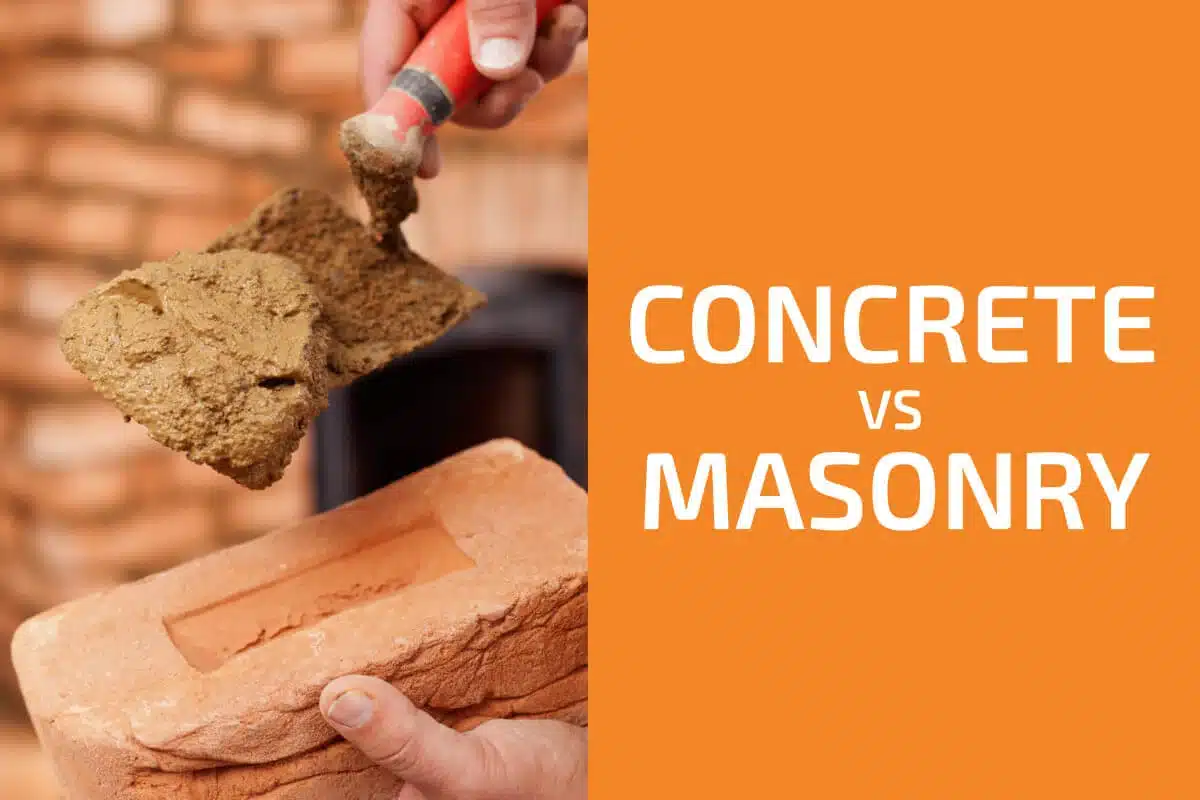Exploring masonry concrete is a good approach if you are planning the construction of your project. Choosing between them can directly affect the building’s cost and other factors. Well, it is true that these two terms are similar, but they are different from one another and offer various advantages for different project scopes.
If you are here to know the difference between them according to the expenses, then we highly recommend that you consult a professional estimating company. Such professionals provide a detailed breakdown of the material required, whether you want to work with masonry or concrete. So, stick to this guide and let us show you the major differences between these two terms.
IN THIS GUIDE, YOU WILL GET TO KNOW ALL THE TRAITS AND DIFFERENCES BETWEEN MASONRY CONCRETE SO THAT YOU CAN UNDERSTAND WHICH ONE IS SUITABLE FOR YOUR PROJECT!
What are the major differences between masonry VS concrete?
Masonry is used as a construction method in which bricks, stones, and concrete blocks are assembled. With the help of a binding material, which is known as mortar. The purpose is to create a solid structure in which the creation of walls and foundation is included.
On the other hand, concrete is also known as a building material that is made from sand, cement, and aggregate. Basically, it is then converted into a mould, and then, after some time, it is cured. Curing means that it is solidified after hours; the timing depends on the thickness and other factors.
Material Composition and Construction Methods
Masonry Construction
Now, let’s discuss the major types of masonry:
- Brick Masonry is used in residential projects because it is made up of clay and bricks that enhance the beauty.
- Stone Masonry gives a natural look with granite that is also used due to its strength and beauty.
- Concrete Block Masonry is lightweight, which is ideal for insulation
The construction process involves building brick by brick, stone by stone, spreading a layer of mortar on the top of a layer of bricks, then laying bricks on the mortar and continuing the operation until the desired height is reached.
Concrete Construction
However, Concrete is usually poured into different required moulds, which are then solidified to form floors, walls, etc. Well, in many cases, concrete is formed in the factories and then transported to the working sites.
Durability and Structural Performance
Masonry Strengths:
- Offers excellent compressive strength and is highly durable against fire and weather. However, it’s less effective in withstanding tensile forces.
- Masonry is solid, strong, and won’t dent from hail, stones thrown by vandals, or from accidental car bumpings in the parking lot.
- Historical buildings demonstrate masonry’s longevity, with structures lasting centuries.
Concrete Strengths:
- It provides a good strength that helps to handle tensile forces.
- Concrete is one of the strongest building materials. That is why building owners use it in building structures.
- Concrete provides ideal performance under heavy loads.
Cost Analysis
Concrete is a budget-friendly material according to its ability to convert into the desired shapes and provide the best strength. If you want to acquire information about the expenses required for concrete, then seek professional concrete estimation from a reliable company to prevent over-budgeting.
Whereas masonry materials are expensive because bricks and stones are mostly used. Plus, they are used for decoration purposes and are high in quality. Moreover, you will need skilled labour to work with it, which increases the overall budget. So it is a safe option to get expert masonry estimation from a professional company!
Construction Speed and Labor
If we look into the overall speed, then masonry takes more time because every unit needs to be placed correctly. On the other hand, concrete is faster to install because of ready-mix options.
The process of masonry is time-consuming, which requires more budget to complete the project. Plus, you will have to hire skilled labor for masonry, which increases the overall expenses.
Ideal Applications: Masonry vs Concrete
When to Choose Masonry?
- Residential buildings where aesthetics are paramount.
- Decorative facades and architectural features.
- Retaining walls and chimneys.
- Historical restoration projects.
- Projects requiring a natural material appearance.
- Smaller-scale projects where the appearance and texture of natural materials are desired.
When to Choose Concrete?
- Foundations, driveways, and other heavy-duty jobs.
- Industrial and commercial buildings require high strength.
- Projects with tight timelines.
- Projects requiring specific shapes and forms that can be achieved through casting.
Fire Resistance and Safety
Both materials offer excellent fire resistance. Masonry won’t burn; therefore, it protects your investment in your building and its contents. And, it can result in lower insurance rates. So that means both are good options!
The Bottom Line!
Well, choosing between masonry and concrete comes up to one thing: your requirements! You have to select the right material for your project according to the requirements. As we have discussed in the article that concrete is popular due to its strength and budget-friendly nature. Masonry provides a beautiful look and makes it ideal for decorative uses. However, for achieving the desired results, it is always recommended to consult professional contractors. As they are experts in knowing the local conditions and budget-related issues.

